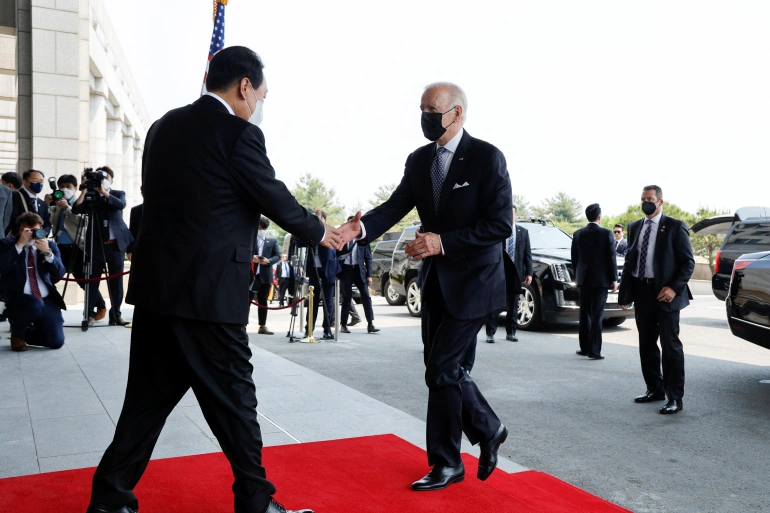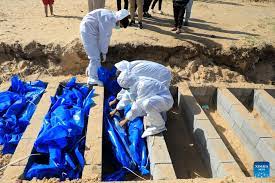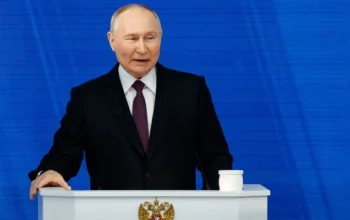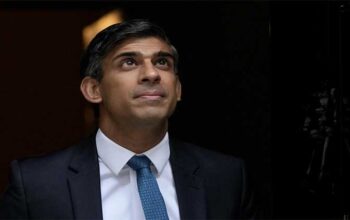SEOUL: The leaders of South Korea and the United States have agreed to consider expanding the scope and scale of their joint military exercises after a record number of missile tests from North Korea since the beginning of the year.
President Yoon Suk-yeol and his US counterpart, Joe Biden, announced the move in a joint statement on Saturday following their first summit in South Korea’s capital, Seoul.
“The two presidents share the view that [North Korea’s] nuclear program presents a grave threat not only to peace and stability on the Korean peninsula, but also the rest of Asia and the world,” the statement said.
“Both leaders condemn [North Korea’s] escalatory ballistic missile tests this year,” it said.
The statement also outlined other deterrence measures, including a promise to deploy strategic US military assets – such as fighter jets and missiles – to South Korea, if necessary.
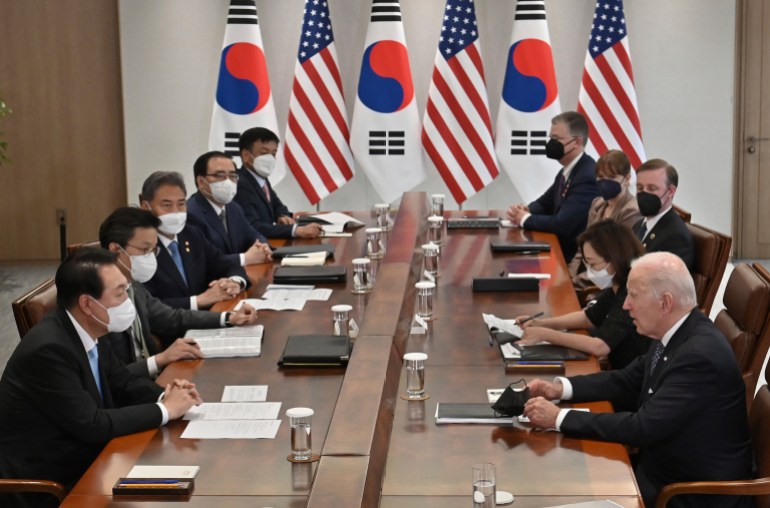
But the two leaders also offered assistance to North Korea, expressing concern over a growing COVID-19 outbreak in the impoverished and isolated country that has infected an estimated two million people and killed at least 66.
“With regard to the ongoing COVID-19 crisis, we are willing to provide active assistance from the perspective of humanitarianism and human rights separately from political and military perspectives,” Yoon told reporters after the two-hour summit.
Biden also reiterated that stance, adding that Washington had offered COVID-19 vaccines to North Korea and China, but “got no response”.
‘Door for dialogue’
Both leaders also said they were open to diplomacy with the North.
“The door for dialogue is open,” said Yoon. “If North Korea embarks on substantial denuclearisation, we will prepare an audacious plan to improve North Korea’s economy and the quality of life for North Korean people in cooperation with the international community.”
There was no immediate comment from North Korea.
But any enhanced South Korea-US military cooperation is likely to anger the government there as Pyongyang views their joint drills as a rehearsal for invasion.
In their joint statement, Yoon and Biden also agreed on the need to strengthen their 70-year old alliance – forged after the US intervened to help the South fend off the North’s invasion in 1953 – to meet the challenges of a changing world order.
That includes not just addressing Pyongyang’s provocations, the two leaders said, but also promoting a rules-based international order amid Russia’s invasion of Ukraine as well as a “free and open Indo-Pacific”, a reference to countering China’s growing influence in the region.
The statement, reflecting Yoon and Biden’s desire for stronger ties, is the first key outcome of the US leader’s Asia trip that also includes a visit to neighbouring Japan on Sunday.
Aimed at reassuring allies of the US’s commitment to the Indo Pacific region, the tour – Biden’s first to Asia as president – comes at a time when the world’s attention has turned to Russia’s war in Ukraine.
In Tokyo, Biden will host a meeting of the Quad, an informal security grouping that comprises the US, Japan, Australia and India, and launch the Indo-Pacific Economic Framework (IPEF), an agreement that seeks to set standards on supply chains, worker protections, decarbonisation and anti-corruption.
For the US, both South Korea and Japan are key states in its strategy to counter China and forge a strategic global alliance of democratic states at a moment Biden described as “an inflection point in world history”.
“Things are changing so rapidly,” he told reporters. “I think you’ve seen – and you’re going to see more of – there’s going to be competition between democracies and autocracies.”
And to address those challenges, democracies across the Indo Pacific, he said, wanted to cooperate “much more closely, not just militarily, but also economically and politically”.
There was no immediate comment from China.
But ahead of the Yoon-Biden summit, a top Chinese envoy said he hoped the US will “work with countries in the region to promote solidarity and cooperation in the Asia-Pacific, instead of plotting division and confrontation”.
Liu Xiaoming, the Chinese envoy for Korean affairs, added on Twitter: The US “should join efforts to foster an open & inclusive “circle of friends” in #Asia-Pacific, instead of putting together a closed & exclusive “clique”. It should do more to contribute to peace & development in the Asia-Pacific, instead of creating turbulence & chaos in the region.”
